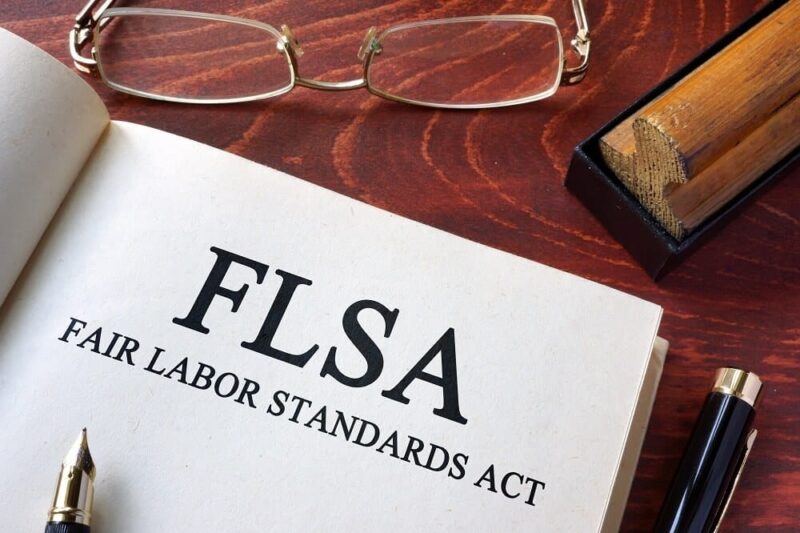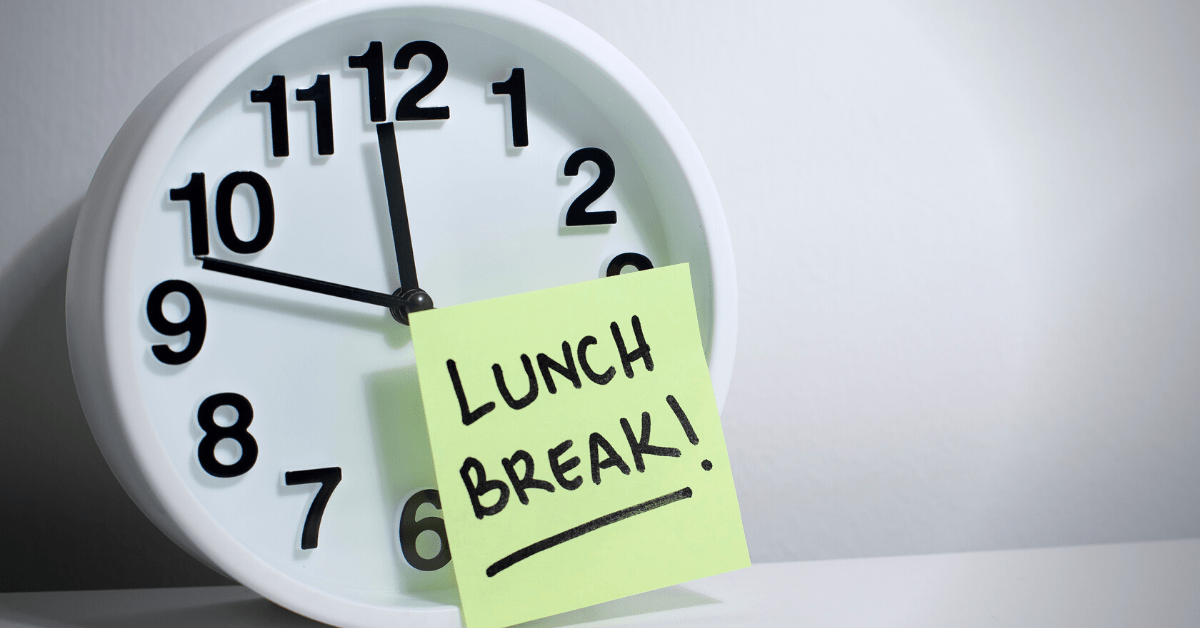According to a survey made by ezCater, nearly half of the respondents (48%) have revealed that they skip lunch at least once a week. The survey shows that 70% of Gen Z workers who participated in the survey skip lunch once a week.
Lunch breaks are important in maintaining employees’ productivity in the workplace. These breaks give them time to rest, recharge, and refuel.
The regulations governing these breaks can vary significantly from one jurisdiction to another. The specifics of lunch break laws depend on the country, state, or even the type of employment.
California lunch break laws are among the most comprehensive in the country, outlining specific requirements for meal breaks that employers must follow.
Understanding lunch break laws is necessary for employees and employers to guarantee compliance and promote a healthy workplace culture.
Let’s look into the important aspects of lunch break laws, including federal regulations, state-specific variations, and the implications for employees and employers.
Overview of Lunch Break Laws

Many employees believe they are entitled to a lunch break, but it varies based on your workplace.
You’ll get at least one meal break if you are working a full shift. The length and time, in most cases, differ widely. Some states require that employees get a 30-minute meal break for working more than five hours. Others simply do not require any meal break at all. Knowing what specific requirement applies to your situation is important to avoid the violation of your rights as a worker.
For example, some employers have policies providing longer breaks than are mandated by law, so check your company handbook or ask HR for more information.
If your break is cut short or you are required to remain on duty during meal times, this may constitute a violation of your rights.
Ask questions or seek a solution if an infringement happens to your right.
Federal Regulations Explained

Being mandated by state laws is the aspect that affects the meal break requirements. The regulations governing federal laws are completely different. Keep in mind that the Fair Labor Standards Act (FLSA) does not cover all wage and hour topics.
Your employer is not bound by federal law to give you a lunch break. In case you are entitled to a lunch break, an employee needs to follow certain rules. First, if an employee works more than 40 hours a week, then any break time of 20 minutes or less must be paid according to the FLSA.
For those longer breaks like the usual meal period, which is 30 minutes or more, they can choose to pay for the duration or not.
State-Specific Lunch Break Laws
In California, an employee who works more than five hours must take a 30-minute meal break, whereas in New York, a 30-minute lunch is required if working more than six hours per shift.
Some states, like Texas, do not have a break law but permit the employer to set the rules in cases where breaks are given. Other states have different laws for certain kinds of work. Healthcare and transportation, for example, require stricter break rules since their industries have a higher labor demand.
You can find the latest updates about local state labor laws on their own websites. Familiarize yourself with these regulations to continue advocating for your rights.
Consulting a local labor attorney or your HR department can help clarify any confusion you might have regarding your state’s labor laws.
Employer Responsibilities
Employers are responsible for making their employees understand their rights regarding lunch breaks.
The company should notify you regarding lunch breaks, for how long, and when you are entitled to them. This is done to avoid confusion and establish clear guidelines on lunch breaks.
Employers are required to comply if their state has provision for breaks after a particular time of work.
Employers should regularly conduct trainings that keep supervisors and managers aware of the law concerning lunch breaks. They should encourage these employees to take their breaks.
Employee Rights and Protections

Your employer owes you money if he fails to give you all the legally mandated breaks you deserve. Keep track of your hours and lunch breaks so you can use them as evidence in future disputes.
Lunch break laws state that you are not under obligation to answer any emails or perform any other work-related task during the break period.
Common Violations and Remedies
If you experience any form of violation of your lunch breaks, you must accurately record the incident. Include the date, time, and list of people who can serve as witnesses to the incident.
Depending on the severity of the violation, you may consult with your direct supervisor or the Human Resources department.
In case the issue cannot be resolved internally, a complaint can be filed with your state’s labor department. Extreme cases might require the services of a lawyer who specializes in labor law to uphold one’s rights.
Tips for Advocating Your Rights
Immediately do something in case you discover a discrepancy in your records of working hours and break times. Having a record of these can support your claim and be used as credible proof when filing a complaint against your employer.
Discuss your concerns calmly and professionally with your supervisor or HR department. Suggest solutions and changes to the schedule so that everyone gets a break.
Conclusion
While there is no federal regulation requiring breaks, most states have laws in place to recognize the importance of lunch breaks in providing employees with a healthy work-life balance. Do not hesitate to stand up for your rights if you feel that a violation has been made regarding your lunch break. Consult a skilled attorney to effectively address the issue.

